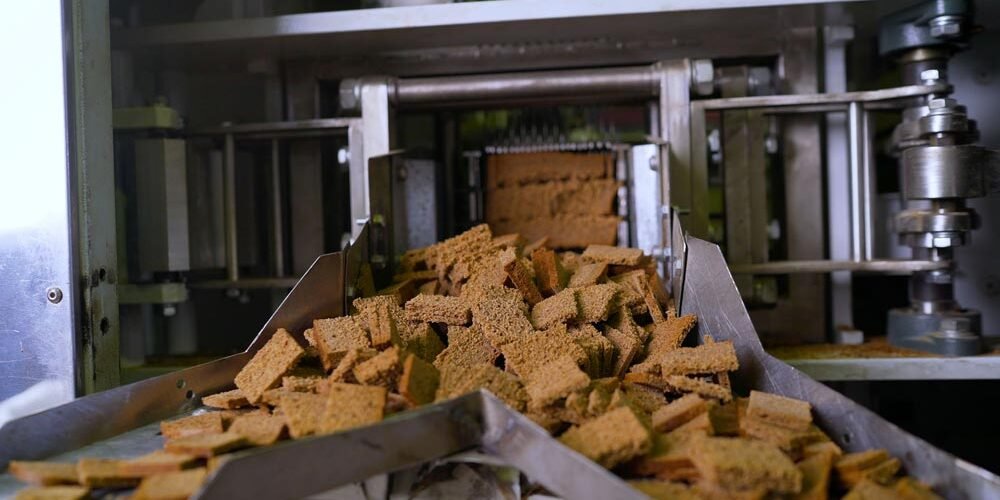A rusk-baking plant is an industrial facility specifically designed for the large-scale production of rusks, which are hard, twice-baked bread products. Rusks are popular as a snack or breakfast item, known for their crisp texture and long shelf life. The facility is equipped with specialized machinery and systems to handle the entire production process, from mixing ingredients to baking, cooling, cutting, and packaging. Here’s a detailed overview of what constitutes a rusk-baking plant.
A rusk baking plant is an industrial establishment equipped with machinery and infrastructure designed to produce rusks through a series of standardized processes, including mixing, first baking, slicing, second baking, cooling, and packaging while adhering to food safety and quality standards.
The primary purpose of a rusk baking plant is to produce high-quality rusks efficiently and in large quantities to meet consumer demand. The facility aims to achieve consistent quality, maximize production capacity, and maintain cost-effectiveness while ensuring compliance with food safety and regulatory requirements.
A rusk baking plant is a sophisticated industrial operation designed to transform raw ingredients into finished rusks through a systematic and controlled manufacturing process. The facility ensures high standards of quality, safety, and efficiency, enabling the mass production of a popular and durable baked product

